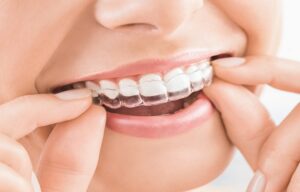
Testosterone is the most vital male hormone. Being the leading sex hormone, it regulates their sexual health, reproductive aspects, and overall health. According to Evan Bass Men’s Clinic, when testosterone levels drop below their normal range due to aging, or any other reason, men start experiencing serious health issues, not limited to their sexual health, such as lack of sex desire, erectile dysfunction (ED), and even infertility.
Recognizing the connection between low-T (low testosterone) and its associated issues is the basic step for individuals in finding solutions.
Effects of Low Testosterone on Libido
Sexual desire, termed as libido, has an intimate linkage to testosterone balance. While men with healthy hormone levels have a healthy sex drive, a drop in it affects the brain with a weaker signal, prompting a lack of sexual desire. Consequently, men start losing interest in sexual intimacy that eventually takes a toll on relationships, self-esteem, and overall quality of life.
The Relation Between Low Testosterone and ED
Erectile dysfunction (ED) is another consequence of low testosterone. A healthy testosterone level has the potential to arouse the brain’s hypothalamus, which is prompted by the arousal signals. It instantly starts releasing neurotransmitters, including dopamine and nitric oxide, encouraging increased blood flow to the penis to achieve an erection.
A lack of enough testosterone typically results in a loss of signalling power, resulting in a lack of blood flow to the penis and ED. Incidentally, several other causes like stress, diabetes, and heart disease can be the reasons for ED.
Low Testosterone and Infertility
Testosterone also plays a role in producing sperm. Lack of T level may impact sperm production or sperm of inferior quality, making it difficult for a male to make his partner conceive, affecting pregnancy. Infertility from either side is extremely frustrating and mentally draining for couples. However, other than low testosterone, there might be various other reasons behind a male’s infertility, and a doctor’s advice is essential.
Lifestyle Choices That Decrease Testosterone
Poor nutrition, lack of sleep, chronic stress, cigarette smoking, and alcohol consumption are major contributors to hormonal decline. Having too much body fat, especially abdominal fat, can decrease testosterone levels and vice versa. Men who work long hours with minimal downtime might also see gradual declines in hormone levels. Preventative measures must be taken early to maintain long-term health.
Medical Treatments for Low Testosterone
Physicians in medical facilities like Evan Bass Men’s Clinic usually order blood tests to verify low testosterone. If levels are below what is normal, treatment medications like testosterone replacement therapy (TRT) can be prescribed. TRT can rebalance hormones, enhance libido, and enhance erectile performance. Medications are sometimes given in some instances to aid in sperm production. Medical treatments, however, need to be monitored by professionals to prevent side effects and achieve safe outcomes.
Natural Ways to Enhance Testosterone Levels
In combination with medical treatment, natural methods are effective in upholding testosterone. Regular exercise, especially strength training, is advantageous. A well-balanced diet containing protein, healthy fats, and nutrients supports the production of hormones. Adequate sleep and stress management techniques like meditation, yoga, or relaxation also shield testosterone. Quitting smoking and curtailment of alcohol further boost reproductive health.
Strengthening Sexual and Reproductive Health
Low testosterone does not necessarily lead to long-term sexual and fertility issues. Through the proper mix of medical management, lifestyle changes, and honest communication, men can successfully regain sexual vigor and reproductive capacity.
Low testosterone damages sexual health and fertility. Prompt lifestyle intervention and medical assistance can reestablish equilibrium and wellness.







